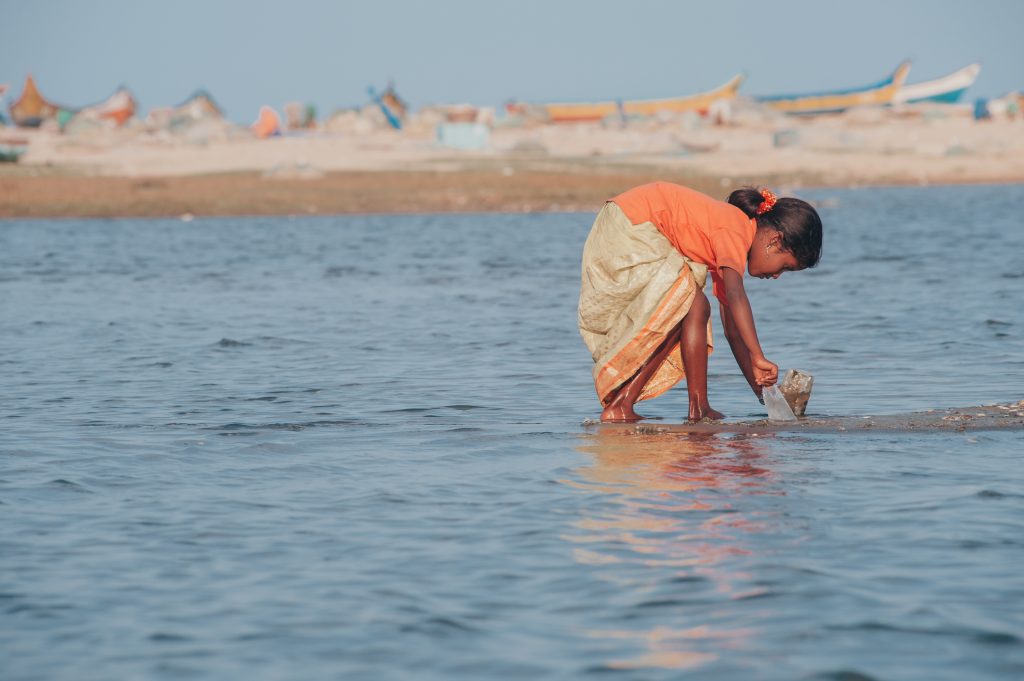

1. Clean water keeps kids in school
Every year, children around the world miss a staggering 443 million days of schools to water and sanitation-related diseases like diarrhea alone. That would be like every student in America missing eight days of school for symptoms that could be easily prevented. All those empty seats are missed opportunities for students to keep up with their studies—miss enough days and many students just drop out altogether, continuing the cycle of poverty in some of the poorest communities.
A clean water source means fewer days bedridden and more days hitting the books. When children can continue their education, they can earn better-paying jobs and lead their communities and countries toward the prosperity they deserve.
Read how Vannary’s school was changed by clean water.
2. Clean water saves money
You may not think much about snagging a bottle of water at the gas station or on your way through a grocery line. But for many people, bottled water is the only option for clean drinking water, and it comes at a steep cost. People in poor communities already struggle to support their families, so scrounging together every penny for bottled water means sacrificing something else they need. Vendors—knowing how valuable their product is—outrageously inflate the price, which just tightens the vice on poor communities.
Imagine the difference, then, when a local well produces clean water every day. People are no longer at the mercy of expensive bottled water vendors. Most importantly, it puts more money back in their pockets for other things that make their lives better: food, medicine, and education for their children.
See how an entire community could save money on bottled water using filters.
3. Clean water helps the environment
Consider this the next time you set a pot of water on the stove: In some places, the only way to make the sullied water they draw from lakes and rivers drinkable is to boil it. But creating a heat source takes fuel, and that fuel usually takes the form of firewood. Not only is collecting firewood day in and day out backbreaking work, but once loose branches are gone, the only option is to start cutting down trees.
With every tree that falls, the ground loses strong roots to hold it together, leaving it vulnerable to soil erosion and flash floods. Every strong rain washes away fertile soil, leaving the rest useless for planting crops. It’s a vicious cycle.
Water wells and water filters mean people don’t have to rely on firewood to make their water safe to drink. People can have both: clean water and fertile land!
Read how a water filter helped Gesang save time and money on firewood.
4. Clean water is good for the global economy
It’s true, you can put a price tag on clean water! A lack of clean water costs the world economy somewhere in the neighborhood of 260 billion dollars every year. You read that right. How does the math work out? In this case, time really is money.
When people have to miss work because of illnesses caused by contaminated drinking water, they don’t get paid. Employers also lose out on productivity, which keeps businesses from growing. Then there’s the time it takes just to find water every day. Some people walk miles, multiple times a day, to collect water and return it to their homes. That’s valuable time that could be better spent at a job or learning a skill. Finally, premature deaths from water-related illnesses erase years of potential work productivity.
With clean water sources near their homes, people spend more time working and making an income for their families. They’ll also stay in those jobs longer, with less likelihood of contracting a water-borne illness.
The World Health Organization estimates that for every $1 spent on clean water projects, the world gets an economic benefit of $2. That’s a double impact every time you donate to clean water projects!
Learn how a water well even gave Lionel a new job.
5. Clean water creates a better future for girls and women
In many cultures, tradition dictates that collecting water is a woman’s job. Women walk an average of 3.7 miles round-trip to find a water source, and they may make that journey several times a day, carrying up to 40 pounds of water on every trip. The walk is treacherous—often uneven, hilly terrain, and there may be robbers and assailants lying in wait.
It’s a big job, so women often pull their young daughters out of school to help, making it unlikely that they’ll ever get the chance to even attend high school.
With a source of clean water nearby, girls can have equal opportunity as boys to get an education, obtain good jobs, and start families as they choose. With extra hours in their days, women suddenly have more time for new opportunities: learn a new skill, maybe even get a job of their own.
See how Myrna’s daily life was changed when clean water came to her village.
No matter how you give, donating to clean water projects always makes a difference. Donate below and help us reach more people in need of water.
